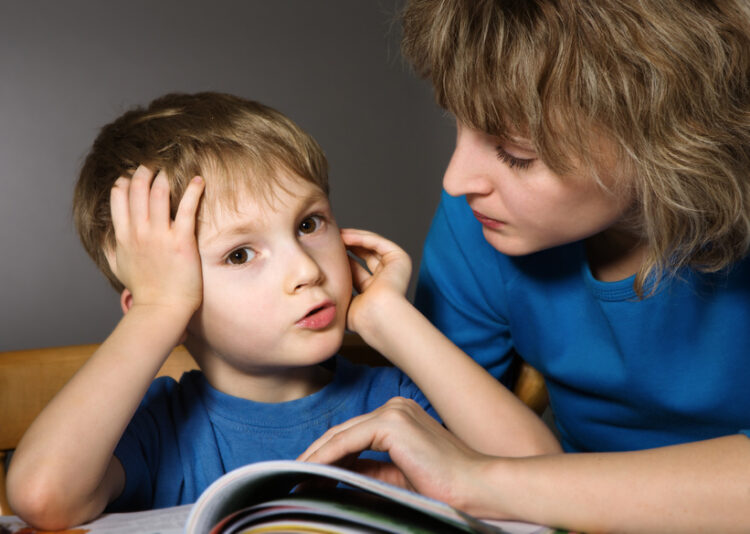

Signos de problemas del habla en la niñez
Muchos legos reconocen problemas obvios del habla en los escolares, como tartamudeo o falta de fluidez general. Sin embargo, dado que existen muchos tipos diferentes de trastornos del habla, aprender a detectar los signos de cualquier tipo de trastorno puede desempeñar un papel central en la intervención temprana. Consulte a su médico y a un centro de intervención si identifica alguno de los siguientes síntomas:
- El bebé no sonríe ni interactúa con los demás (desde poco después del nacimiento hasta el año de edad)
- El bebé no balbucea a la edad de cuatro a siete meses.
- El bebé hace muy pocos sonidos o solo usa gestos (como señalar) entre los siete y los 12 meses de edad
- El niño usa solo unas pocas palabras entre los 12 y los 18 meses.
- Las palabras del niño son muy ininteligibles después de los dos años.
- El niño no usa oraciones completas a la edad de tres años.
- El niño tiene problemas para hablar o jugar con otros niños a la edad de tres años
Signos de problemas auditivos infantiles
Hay una serie de factores congénitos que pueden provocar problemas de audición. Estos factores pueden provocar una pérdida auditiva temprana o una condición auditiva que empeora progresivamente con el tiempo. Mientras que algunos problemas de audición se hacen evidentes en los chequeos pediátricos, otros niños pueden llegar a la escuela antes de que los padres o maestros identifiquen el problema. Sin embargo, varios factores deberían alertar a los padres o cuidadores sobre posibles problemas auditivos:
- Sin reacción al sonido a ninguna edad.
- El bebé no salta ni reacciona en respuesta a sonidos fuertes o repentinos
- No balbucear una vez que el bebé ha pasado los nueve meses de edad.
- Ninguna palabra hablada cuando un niño pequeño ha alcanzado los 18 a 24 meses de edad.
- El niño pequeño no reacciona ni sigue órdenes simples a los 24 meses de edad
- Mala calidad vocal a la edad.
Señales de problemas de lenguaje en la niñez
Los problemas de lenguaje pueden ocurrir cuando un niño no ha alcanzado los hitos de comunicación esperados para una edad determinada. Si bien la posibilidad de retrasos en el lenguaje puede ser perturbadora, es importante saber que también son comunes. Según un estudio de la Universidad de Michigan, los problemas del lenguaje afectan hasta al 10 por ciento de los niños en edad preescolar. Abordar los primeros signos de problemas del lenguaje puede desempeñar un papel importante en la prevención de retrasos o deficiencias que tengan un impacto indebido en el rendimiento escolar o las interacciones sociales. Los padres o cuidadores pueden ayudar a sus hijos tomando nota de las siguientes señales:
- El niño no balbucea a los 15 meses de edad
- El niño no usa palabras a los dos años de edad.
- El niño no usa oraciones simples a los tres años de edad.
- El niño en edad preescolar constantemente deja palabras fuera de las oraciones, tiene una articulación inusualmente pobre o tiene problemas para poner palabras en oraciones
- El niño en edad preescolar expresa dificultad o desinterés en usar utensilios de escritura (incluidos lápices de colores y crayones) o aprender letras
Al reconocer las señales de advertencia a tiempo, los adultos pueden dar los primeros pasos para obtener la evaluación, el diagnóstico y el tratamiento adecuados para ayudar a cualquier niño.


